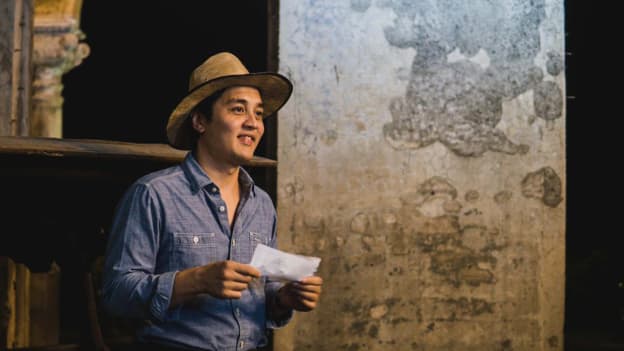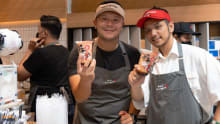Adapting to change, in an old-fashioned industry: Bleeding Heart Rum Company

COVID-19 has caused a great deal of upheaval in the F&B industry, especially for businesses that capitalize on the social and experiential aspect of eating and drinking. People Matters heard one such story first-hand from Andrew Garcia, the co-founder and Managing Director of the Bleeding Heart Rum Company, which produces and exports one of the earliest premium rum brands developed in the Philippines. He shared what the situation has beenlike for his company, and how he and his team are preparing for the industry to undergo a sea change as a result of the crisis.
Supply chain, sales, and even day-to-day operations became complicated
Back in mid-March, the Philippines government imposed some of the most stringent quarantine measures in the world, easing the restrictions only a few days ago. Only essential services were allowed to operate, and in some areas, people needed permits to leave their homes for work or errands.
"Our ability to provide product has been affected," Andrew said. "Everything from the actual production itself to the logistical requirements of trucking product over land and shipping it out through our ports to the destination markets."
Finding buyers has been tricky as well: regular customers in the hospitality industry, including hotels, restaurants, and bars, have been closed down, and on the retail side of the business, staples are now prioritized much more highly than spirits. And even daily operations are difficult: "A lot of simple transactions, like banking or sending out samples, have become a challenge," he said."I might be able to get out of the house to deliver samples or to run an engagement, but the person I'm supposed to deliver the samples to might not be able to come out and receive them."
One big challenge: staff morale and mental health
"The nature of the drinks business is very tactile, so in sales and marketing, for instance, we do a lot with the senses: taste, smell, touch, sight. These are all crucial to be able to sell our product," Andrew explained. "In addition, the business is very relationship-driven, so a large part of the business involves face-to-face engagement. It's a must for us to be able to get customers, distributors, end consumers and even media to taste the product, see it, hold it. And a large part of our workforce is made up of individuals who specialize in these areas—brand ambassadors who go out and meet trade, retail, and consumers."
With the ability to do their job suddenly curtailed, on top of the insecurity and uncertainty brought on by the pandemic, staff morale and productivity has taken on fresh importance. But here, at least, Andrew and his team can do something to help people cope.
"We have been trying to keep them engaged," he said. "We encourage our staff to think of initiatives for external engagement, ways of working with our distribution partners to drive sales in different ways. Internally, we've been working on some long-term product development: since we have a bit more time on our hands, it does enable us to ask our staff to think about long-term programs. And we have been holding virtual training masterclasses on video calls, helping staff to improve their existing skills or teach each other new skills like cocktail-mixing—it keeps them engaged and focused, and it's a productive way of spending the time."
Preparing for permanent changes to the industry
The spirits industry will be affected in three main levels, Andrew said of the pandemic's effect. At consumer level, fewer people will be interacting with the product in a bar or restaurant setting. At the distribution level, trade shows, which are the bread and butter of many businesses in this industry and others, might be off the table going forward. And at brand level, producers will have to adjust their strategies to match what is happening at the other two levels.
"We have to act as the drivers to effect that change," he said. "We have to develop ways to help our distributors sell, and to help our consumers enjoy the product."
Some of those ways are a major change from how the industry has operated up to now. For example, Andrew and his team previously spent a great deal of time on the road, visiting the distributors they work with for on-site engagements. Now, like many other companies, they are implementing their sales programs via conference call—and unlike many other companies, they are pairing the conference calls with physical product in order to cater to the tactile nature of the business. The idea, he said, is that as they speak to distributors and customers on the call, the product will be right there for the other party to taste, to smell, and to feel.
But doesn't this take away much of the atmosphere associated with this business? Unavoidably so, according to Andrew. "It's a very traditional, old-school kind of business, a handshake type of business," he said, and with a laugh, "The handshake might not exist for the time being. So that fundamentally changes the approach."
"I think there's going to be a compromise," he adds. "These changes are part and parcel of doing business, and with e-commerce growing, the adjustment to be able to sell online was coming regardless of the pandemic. Before COVID, our industry had already been shifting towards understanding how we can deliver the online experience, and now that this has happened, it has hastened the process."
















